BEIRUT: The Cabinet is not expected to agree on any major issues, including the food scandal and telecom file, ministers said Thursday before their meeting got underway at the Grand Serail in downtown Beirut. Thursday’s Cabinet session may look at failure of Lebanon’s infrastructure to prevent flooding, and licensing for universities to build new […]
Prime Minister Tammam Salam called on Thursday on rival parties to resume dialogue and prioritize the national interest after urging Arab and Lebanese bankers to help Lebanon confront the crisis of Syrian refugees and hoped that politicians would be “infected” with the success of the banking sector. “We should prioritize national interests and resume […]
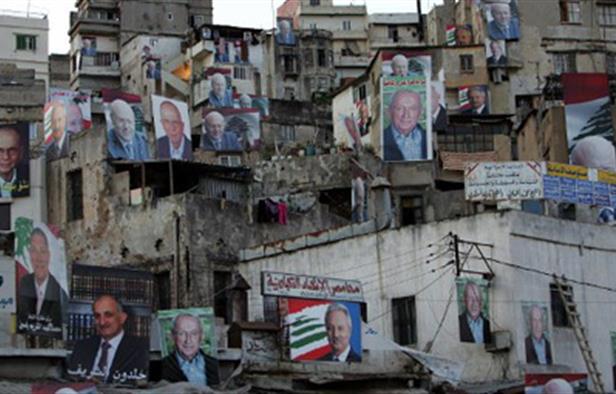
(Reuters) – So many bullet holes cover the apartment blocks and shops in the Bab al-Tabbeneh district of northern Lebanon’s main city Tripoli that you can hardly tell which conflict they are from any more.
"The area is dying," Sheikh Omar al-Rifai, a local Sunni Muslim cleric, shouted over the roar of hammers repairing damaged storefronts and men dragging debris from gutted homes.Last month gunmen including supporters of the hardline Islamic State group fought the Lebanese army here for three days, a battle that killed several soldiers and damaged some of the largely Sunni port city’s most famous historic sites.
To outsiders, it may have seemed like a natural consequence of the dramatic rise of hardline Sunni groups from Iraq to Algeria. But for residents the conflict was rooted more in poverty, joblessness and frustrations over years of what they see as political marginalisation and economic mismanagement.
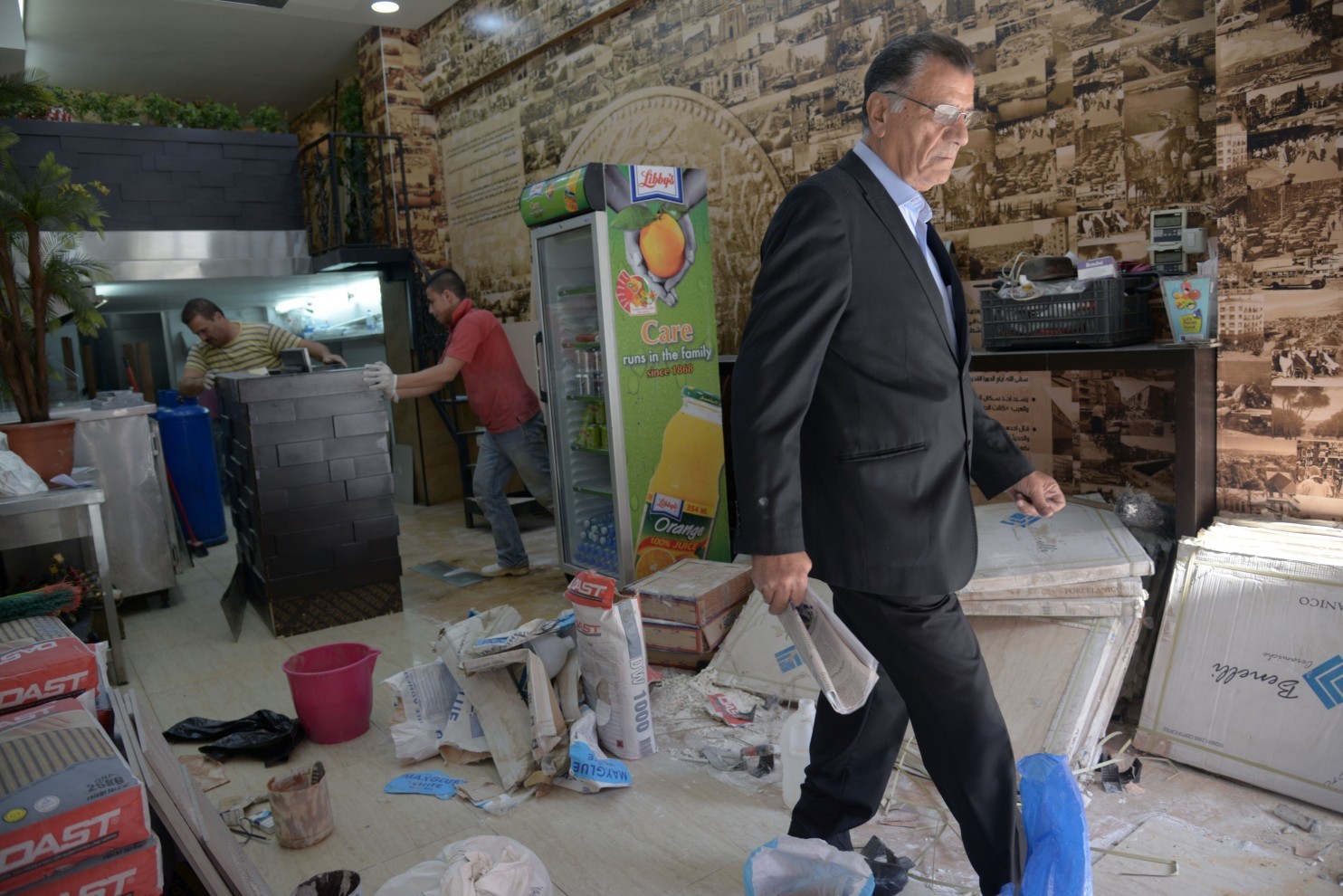
A sweeping investigation led by the Health Ministry identified scores of Lebanon’s restaurants, supermarkets, bakeries and butcher shops are tainted with not only bacteria such as E. coli and salmonella but also sewage and fecal matter. (Kate Brooks/For The Washington Post)
By Hugh Naylor
When it comes to cuisines of the Arab world, perhaps none other is as internationally recognizable — and mouthwatering — as Lebanon’s. There is more than a little pride here over the tangy fattoush salads, delectable mezes and dishes of skewered chicken and lamb that have distinguished this tiny Mediterranean nation as a culinary powerhouse. Which helps explain the shock and furor that erupted over recent findings that food offered at scores of Lebanon’s restaurants, supermarkets, bakeries and butcher shops is tainted with not only bacteria such as E. coli and salmonella but also sewage and fecal matter.
The revelations were the result of a sweeping investigation, led by the Health Ministry, into food-industry hygiene. Wael Abu Faour, the health minister, did not sugarcoat the findings when he announced them at a news conference last week. “The Lebanese don’t know what they’re eating, and it would only be worse if they knew,” he said. In excruciating detail, he named and shamed popular eateries and supermarket chains as public-health offenders. Their infractions included selling expired meat and using rusty cooking utensils and months-old frying oil. Germs also abounded in restaurant kitchens and supermarkets, said Abu Faour, who singled out an unspecified business for selling food containing traces of human feces.“The Lebanese are eating food dipped in sweat and covered with diseases and microbes,” he said. The findings — which emerged from a 20-day campaign in which thousands of food samples from 1,005 businesses were tested — have proved explosive. “Lebanese consumers learn they are eating [s—],” read a headline last week in the newspaper al-Akhbar.
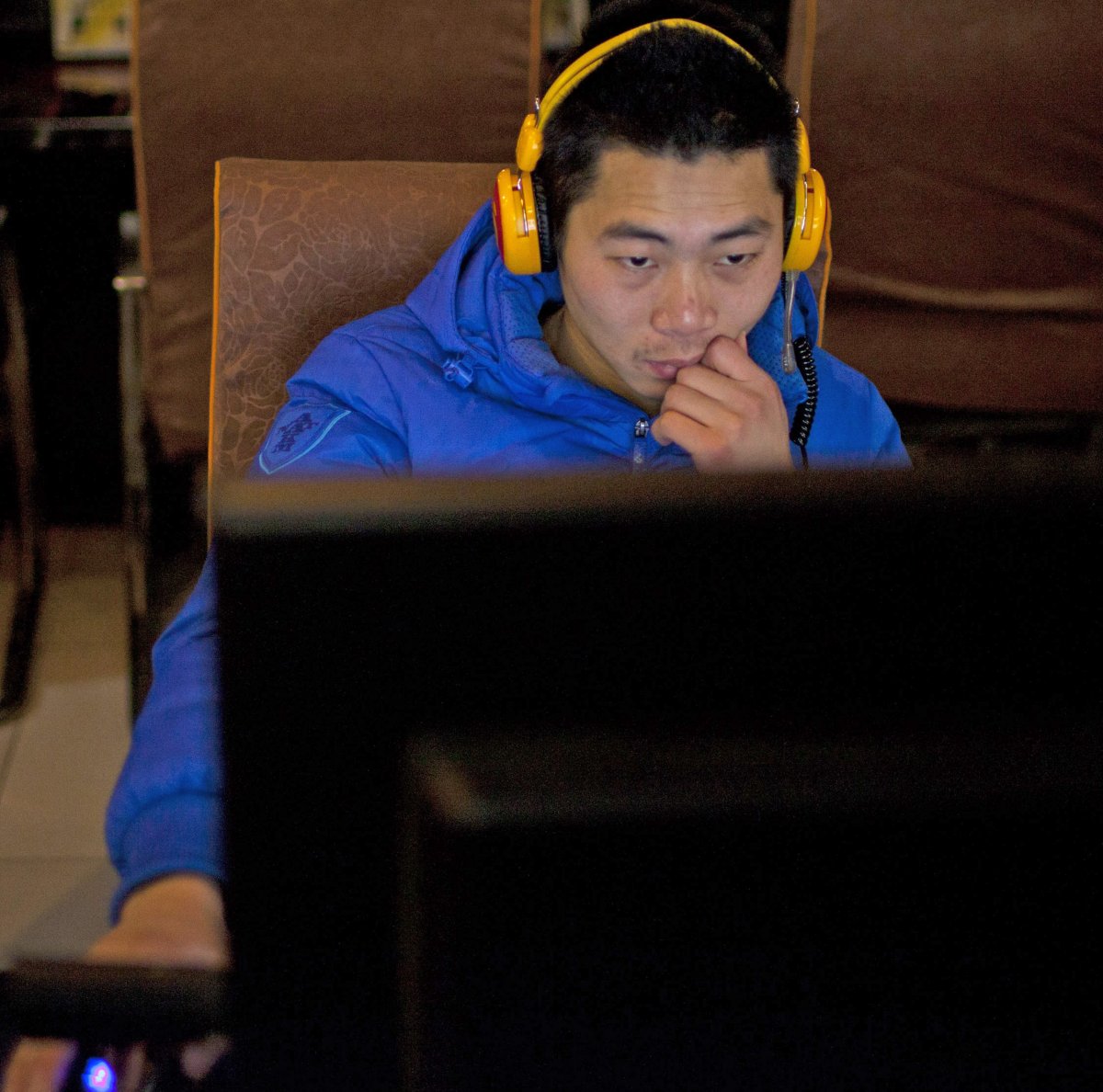
Chinese officials called on Wednesday for controls on the Internet to preserve stability, saying its model for cyberspace regulation can be the framework for spawning commercial successes like Alibaba Group Holding Ltd. The comments, made at the start of the World Internet Conference (WIC), show China is unlikely to loosen its tight grip on the medium even as it has begun a transformation of its economic model.
"This place is crowded with tourists, who are perfectly orderly, and cyberspace should also be free and open, with rules to follow and always following the rule of law," Lu Wei, China’s Internet chief and director of the State Internet Information Office, said at the conference. Lu was referring to China’s eastern tourist town of Wuzhen, roughly 75 miles from Shanghai, which is hosting the three-day conference. Among those attending the conference were executives from Apple Inc, Facebook Inc, LinkedIn Corp, IBM Corp , Microsoft Corp, Qualcomm Inc, SoftBank Corp, Cisco Systems Inc, Amazon.com Inc, Nokia, Intel Corp and Thomson Reuters Corp.
BEIRUT: Hezbollah chief Sayyed Hasan Nasrallah met Tuesday with Defense Minister Samir Moqbel as the minister holds a series of talks with high-ranking political officials after his return from Tehran late last month. According to a statement released by Hezbollah’s media office, the two discussed “the latest political and security developments in Lebanon and […]
MP Marwan Hamadeh resumed on Tuesday his testimony before the Special Tribunal for Lebanon, focusing on Syria’s hegemony over Lebanon under the premiership of slain PM Rafik Hariri and examining his ties with former President Emile Lahoud. The ties between Hariri and MP Walid Jumblat came into prominence during the debate over the extension […]
BTEDAAI, Lebanon: Heavy gunfire characterised Baalbek’s farewell to Sobhi Fakhri Tuesday, a local killed by two individuals from the Jaafar clan over the weekend, amid a lot of anger from residents and officials that the perpetrators remain at large. The funeral procession of Fakhri was held in a local church in the town of […]
Michael Rubin, Commentary Magazine,
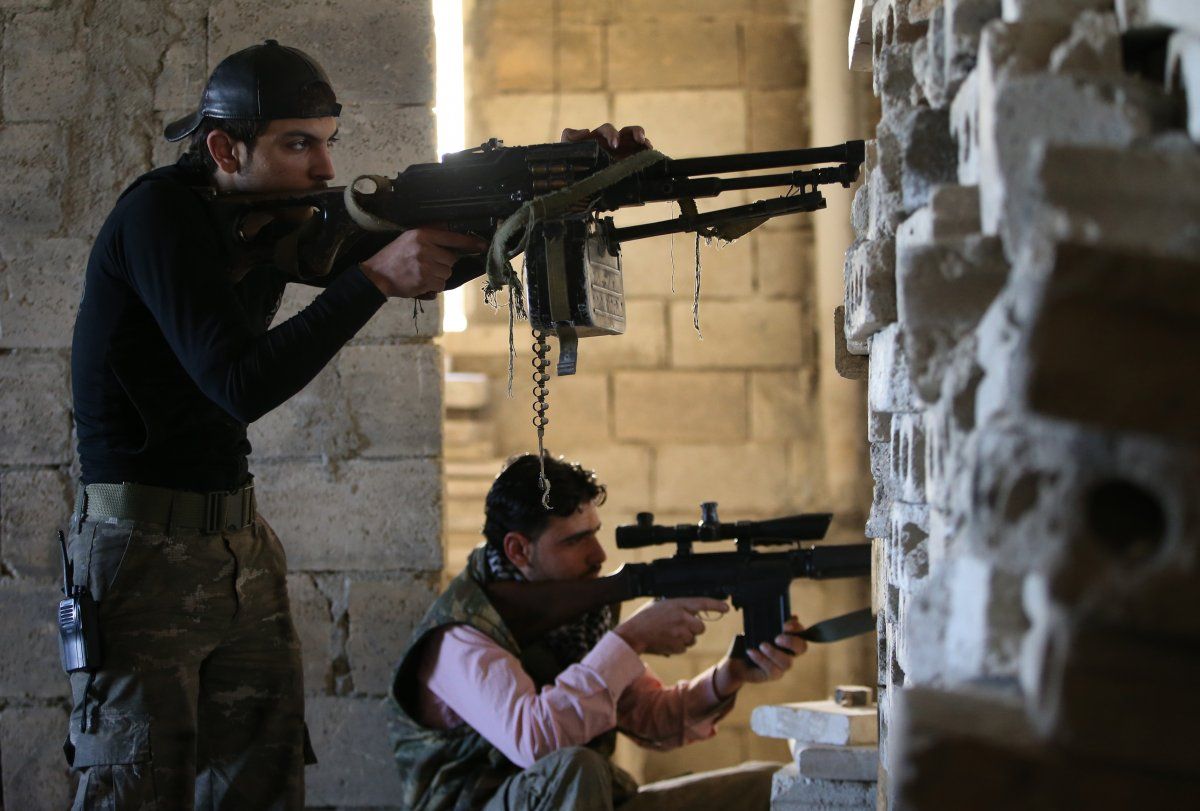
In 1997, against the backdrop of U.S. diplomatic outreach toward the Taliban, John Holzman, at the time the number two diplomatic official at the U.S. Embassy in Pakistan, suggested that the United States encourage engagement between the Taliban and “moderate Islamic states such as Saudi Arabia, Egypt, and perhaps Indonesia.”
Egypt and Indonesia were certainly moderate, but to suggest that pre-9/11 Saudi Arabia would be a great venue to encourage Taliban moderation illustrates perfectly both how too many diplomats turn a blind eye to Islamist ideology promoted by allies and also treat engagement and multilateralism as panaceas.
Fast forward 17 years. What Pakistan once represented vis-à-vis the Taliban, today Turkey represents vis-à-vis many of the most extreme factions among the Syrian rebels.
President Obama has made the training of “moderate” Syrian rebels a central pillar of his strategy to take on ISIS inside Syria and a way to diminish the need for ground combat forces which he is loath to deploy back to Iraq and Syria.
Let’s put aside the fact that training such forces would take more than a year and that they would be inserted against an ISIS foe which is now battle-hardened and brutal.
And let’s also put aside the fact that there haven’t been any serious lessons learned as to why the military training program implemented in Iraq by such military luminaries as David Petraeus and current chairman of the Joint Chiefs Martin Dempsey has proven such an abject failure.
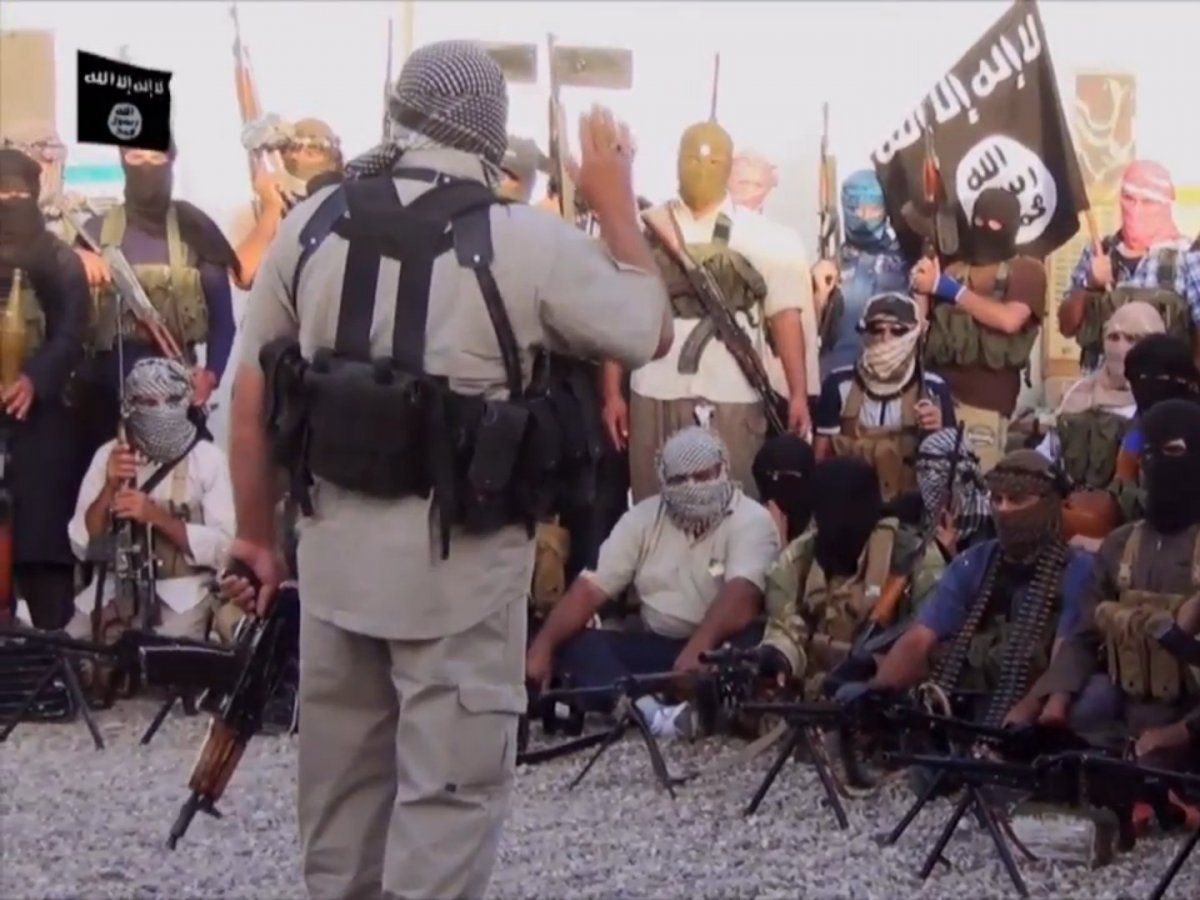
Carl Philipp Gottfried von Clausewitz has taken a beating in the War on Terror. His theories on warfare initially came about coincident with the development of the modern idea of the nation state. Clausewitz regarded war as being between nations.
Asymmetric warfare between transnational entities, such as Al Qaeda, has not lent itself to this analysis. Sun Tzu has been the winner as he largely thinks about battles and tactics and is not devoted to strategy.
Clausewitz has been the major shaper of the American military mind since WWII. If he were alive today and expressed himself in a tweet, it would be, “War is the extension of diplomacy by the use of violence to achieve goals of the state.”
Thirteen years after 9/11, we can now see the involvement of nation states in these events and their aftermath, though they are often portrayed as solely the work of non-state actors.
The majority of the 9/11 terrorists were Saudis. Saudi Arabia has funded the extremist Salafist madrasas in Pakistan. The Saudis’ deal with their Wahhabist base is NIMBY—not in my backyard. They have given them freedom to operate everywhere in the Islamic world—except Saudi Arabia.
There is a strong case that some states Washington calls friends are actually enemies. Saudi Arabia, which runs the “oil brothel” most world leaders frequent, is one of them. The recent preference for Sun Tzu ends up being a “win the battle, lose the war” blueprint.



